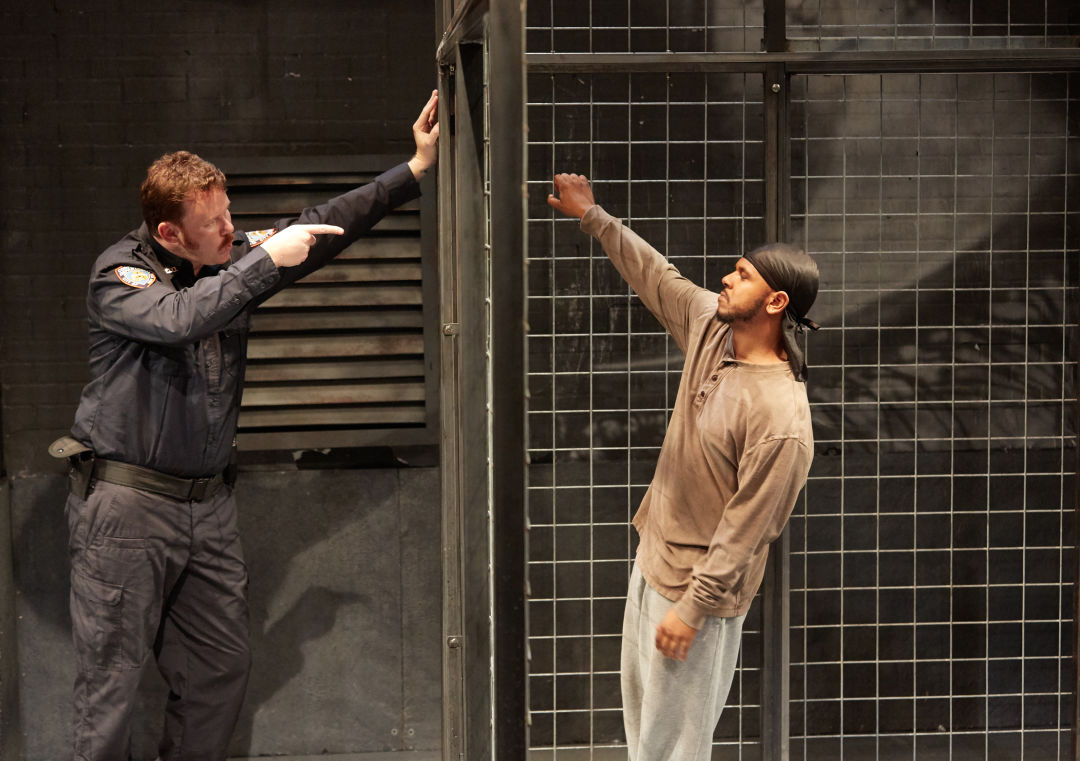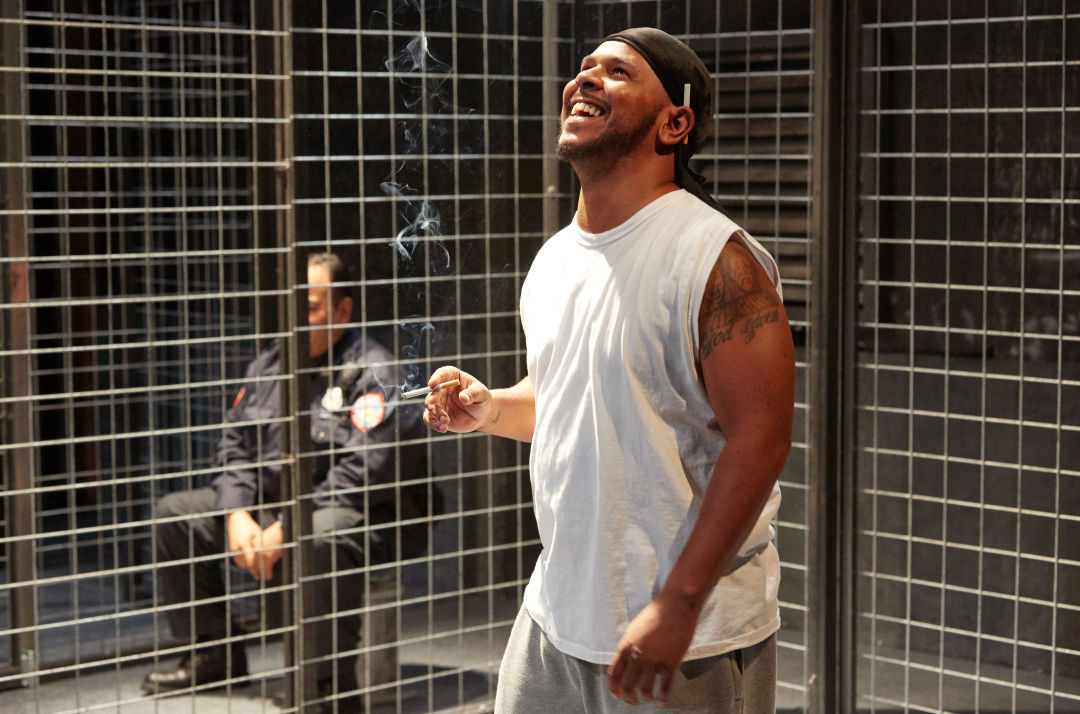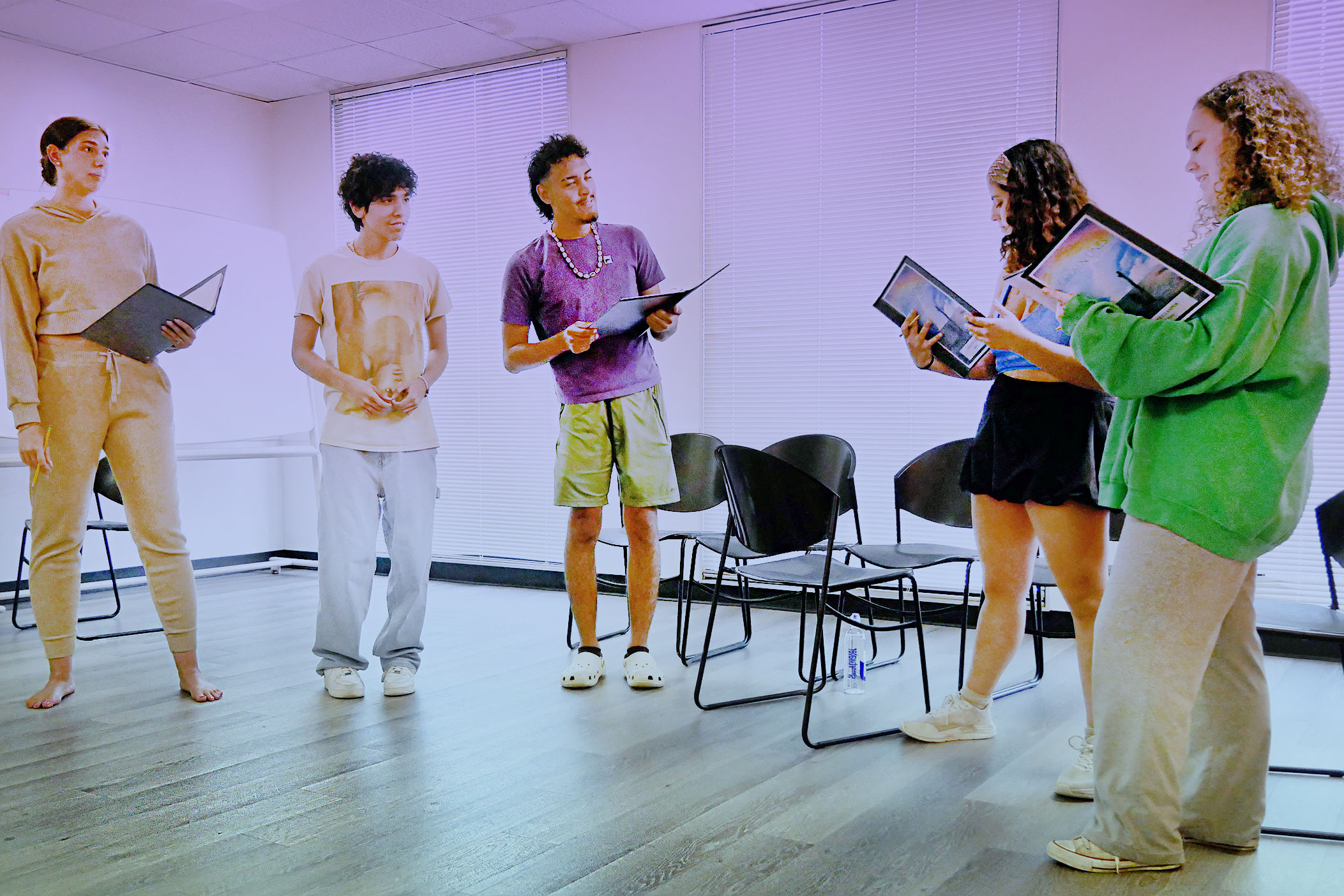Review: 4th Wall Opens with Jesus and Justice

Image: Gabriella Nissen
In Stephen Adly Guirgis’s Jesus Hopped the 'A' Train, you have a front row seat to the angst of two criminals: Angel, a young man who has shot a religious cult leader for recruiting his friend Joey, and Lucius, a murderer who has killed multiple people, including children, in the most gruesome of ways.
It’s not that one is an angel and the other is Lucifer—but one can see how easy it is to fall into these kinds of labels. Jesus Hopped the 'A' Train is a raw and provocative meditation on our justice system and the grotesque ways “the truth” can actually subvert the ideal of punishments fitting the crimes. It is also an exploration of the status of redemption—both legal and spiritual—and the deficiencies in our system that thwart it at every turn.
Kim Tobin-Lehl’s direction is flawless, and the performances are mesmerizing. Set in the prison yard of a high security New York Department of Corrections penitentiary—a spot-on set design by Ryan McGettigan—we have a sympathetic officer named D’Amico (Orlando Arriaga), who is summarily fired for the most trivial of offenses, a reminder that maybe there is no room in American culture for a more humane attitude toward criminals.
Then we have the abusive and cruel Officer Valdez (convincingly played by Santry Rush), who threatens and humiliates the prisoners, feeling he is completely entitled to do so considering the magnitude of their transgressions. Although he is easy to despise, he does represent an understandable contempt for criminals of violent and lethal crimes—a necessary voice in this quasi-morality tale of the limitations of the American justice system. Valdez also plays skeptic to Lucius’s use of religion and God as “self-medication,” chiding him with questions like, “Do you think the sun’s gonna come out before time’s up?”
The play opens with Angel (excellently portrayed by Mateo Mpinduzi-Mott) trying to pray, but he can’t even get through the Lord’s Prayer, his stuttering a striking reminder of his frustrated spiritual state. Mike Mullins’ sound design is extremely effective, beginning with the voices of other prisoners chiding Angel’s first words, giving the audience a vivid feel for the threatening atmosphere of prison life. This prayer is in stark contrast to Lucius’s hyper-articulate rendering of his history and his coping mechanisms, as well as his faith and hope for redemption—including possibly avoiding the death penalty in Florida, the state where his crimes ostensibly take place.

Image: Gabriella Nissen
Language in this play is a prism for all sorts of information—including Lucius’s constant refrain of not “getting enough of the son”—which might mean he is can’t get enough of “the Son,” and his promises of Christian redemption. Angel is also in big trouble, and his lawyer Mary Jane (Christy Watkins) tries to help him in myriad ways, including those that blur the lines between fact and fiction. Watkins, with her spot-on New York accent and tough-talking ways, is a pivotal character in channeling Guirgis’s obsessions with the crazy kaleidoscope of the American justice system. Maybe a juror “likes” you; maybe you can be coached into a non-guilty verdict; maybe intent has nothing to do with anything. But, as the playwright suggests, maybe it should.
Joseph “Joe P” Palmore as Lucius is the star of this show, by turns charming the audience with his quick-witted and heartfelt confessions and philosophizing, and then shocking us with the revelation of his crimes. Clearly mentally ill, part of the reason he has murdered is his claim that he cannot handle “too much of the sun,” in Florida.
As a criminal of such heinous crimes, it is notable that Lucius has resisted the opportunity to be interviewed and court fame: he says television is a “narcotic” with a palpable disdain. As Mary Jane comments, “One man’s neurotic is another man’s hero,” and Lucius resists exploiting his crimes for fame. His physically demanding and nuanced performance (from working out in the prison while reciting the books of the Bible to preaching in the style of the most charismatic minister) in this play is the strongest one I have seen this season, and is not to be missed.
With a fascinating narrative juxtaposition of gut-spilling monologues and more traditional scenes, the actors talk to the audience in a way that forces all of us to confront the issues that the characters have to endure, justified or not. There is wisdom in the words of characters who have done the worst of crimes, and we are reminded by both transgressors and enforcers of the law of the things people “discard,” including other people, even if we know that “everything is not replaceable” and that things can be “lost forever.” We are also faced with the issue of race as Angel screams at his lawyer that “If I was white…I would have…Perry Mason!”
This is a heavy play, with strong language that reflects the rough setting and psychological landscape of a realistic and tragic scenario that plays out frequently in the American justice system. So leave the kids at home, but otherwise, don’t miss the stellar performances in this relevant and not-to-be-missed play. You will be thinking of the moments when “a great right at the expense of a little wrong” might have been too high of a price to pay, when “true lies” erode the fabric of our ethics, and how criminals, for all of us, are a “test of faith” both here and in the hereafter.
Thru Sept. 29. Tickets from $17. Studio 101, 1824 Spring St. 832-786-1849. More info and tickets at 4thwalltheatreco.com.




